(U.S. Department of Energy) The U.S. Department of Energy (DOE) Bioenergy Technology Office's (BETO) 2023 Billion-Ton Report (BT23) is the 4th in a series of assessments of potential biomass resources available in the United States. BT23 explores these resources in
SEARCH RESULTS FOR "searchinger"
Back TO HOMEWood Is Not the Climate-friendly Building Material Some Claim It to Be
by Tim Searchinger, Liqing Peng, Richard Waite and Jessica Zionts (World Resources Institute) Because concrete and steel used to construct buildings are a major source of global greenhouse gas emissions, there is growing interest in “mass timber” — a supposedly lower-carbon
July 27, 2023 Read Full Article
Ethanol Blog: RFA Calls on EPA to Reject Searchinger, Five Other Candidates From RFS Report Review
by Todd Neeley (DTN Progressive Farmer) The EPA has put forward a list of 20 possible candidates to peer review the agency's upcoming triennial report to Congress on the Renewable Fuel Standard, and the Renewable Fuels Association objected to six of
May 25, 2022 Read Full Article
Notice of Public Comment Period on the Pool of Candidate Peer Reviewers for the Biofuels and the Environment: Third Triennial Report to Congress DEADLINE: May 24, 2022
(U.S. Environmental Protection Agency) The U.S. Environmental Protection Agency (EPA) is announcing a 15-day public comment period on the pool of twenty (20) candidates for the external peer review of the Biofuels and the Environment: Third Triennial Report to Congress
May 10, 2022 Read Full Article
ACE to EPA: Adopt GREET Model and Recognize Ethanol’s Low Carbon Value
by Helena Tavares Kennedy (Biofuels Digest) In South Dakota, The American Coalition for Ethanol submitted feedback to the Environmental Protection Agency’s request for comment on the current scientific understanding of greenhouse gas modeling of land-based crop biofuels. ACE CEO Brian Jennings and ACE Board
April 04, 2022 Read Full Article
Dev Shrestha: Real-World Data Shows No Food Insecurity or ILUC from Biofuels
by Tammy Klein (Transport Energy Strategies) On this episode of the Fueling the Future podcast, I spoke with Dr. Dev Shrestha of the University of Idaho about the recent paper he co-authored, “Biofuel Impact on Food Prices Index and Land Use Change.” The
March 04, 2022 Read Full Article
Setting the Record Straight on the Environmental Outcomes of the Renewable Fuel Standard
by Geoff Cooper (Renewable Fuels Association) A new report published today (February 14, 2022) in the Proceedings of the National Academy of the Sciences, funded in part by the National Wildlife Federation, purports to examine the “environmental outcomes” of the Renewable
February 15, 2022 Read Full Article
Biofuels Are a Controversial Climate Solution. Could They Still Help Save the Planet?
by Emily Pontecorvo (Grist) Two recent studies add fresh evidence to both sides of an age-old debate. ... (Lee) Lynd’s study aimed to address the common claim that biofuels do not actually offer greenhouse gas benefits. Ignoring factors like biodiversity and economics, Lynd
September 30, 2020 Read Full Article
Ocean Optimism: A To-Do List of Possible Climate Solutions
(Our Daily Planet) The IPCC Oceans report released on Wednesday painted a dire picture of the health of the ocean today. The ocean is a carbon sponge absorbing 93% of the carbon emitted thus far, and it is reaching a breaking point according
September 27, 2019 Read Full Article
We Have No Idea Yet How to Feed the Planet without Frying It
(Washington Post) ... A new and more accurate accounting method enabled one of the researchers, Princeton University’s Tim Searchinger, to calculate that biofuels are actually environmental villains: “Using ethanol or biodiesel contributes two to three times the greenhouse gas emissions of
August 13, 2019 Read Full Article
Why Carbon Credits for Forest Preservation May Be Worse than Nothing--An (Even More) Inconvenient Truth
by Lisa Song, with additional reporting by Paula Moura (Pro Publica) ... If the carbon in these trees could be quantified, then Acre could sell credits to polluters emitting clouds of CO₂. Whatever they release theoretically would be offset, or canceled
May 23, 2019 Read Full Article
More Sustainable: The Digest’s 2018 Multi-Slide ABLC Guide to Intensification Response & Landscape Design in Bioenergy Production
by Jim Lane (Biofuels Digest) Many prominent bioenergy critiques are feedstock-focused — for example, iLUC (Searchinger et al. 2008), carbon debt. Marginal land strategies identify areas where energy crops likely have competitive advantage for productivity and/or conservation based on Biophysical characteristics
December 03, 2018 Read Full Article
Part of the Answer to Climate Change May Be America’s Trees and Dirt, Scientists Say
by Brad Plumer (New York Times) ... A new study published on Wednesday, however, found that better management of forests, grasslands and soils in the United States could offset as much as 21 percent of the country’s annual greenhouse gas emissions. At
November 19, 2018 Read Full Article
Forbes Reviving Old Food vs Fuel Debate in Light of E15
by Meghan Sapp (Biofuels Digest) In Washington, Forbes magazine is reviving the food vs. fuel debate by sourcing a 2015 publication by controversial researcher Timothy Searchinger from the World Resources Institute’s website. The paper is quoted several times identifying the use of
October 26, 2018 Read Full Article
The Interaction of the Clean Air Act, California's CAA Waiver, Corporate Average Fuel Economy Standards, Renewable Fuel Standards and California's Low Carbon Fuel Standard
by Joanne Ivancic* (Advanced Biofuels USA) The Trump Administration is taking a new look at Obama Administration era Co2 regulations. On the transportation side, these include reviewing Corporate Average Fuel Economy (CAFE) standards; threatening to take away California’s authority to set
May 21, 2018 Read Full Article
The Production and Use of Renewable Natural Gas as a Climate Strategy in the United States
by Rebecca Gasper and Tim Searchinger (World Resources Institute) The production of renewable natural gas (RNG, also known as biomethane or upgraded biogas) is an emerging strategy to turn organic waste into a low carbon fuel for use in vehicles. This working paper explores RNG’s
May 04, 2018 Read Full Article
US Agency Sets Sights on Grass in Bid to Make a Better Biofuel
by Suzanne Goldenberg (The Guardian) Arpa-E project deploys drones and robots to breed fast-growing, drought-resistant and greener biofuel from sorghum which could replace corn ethanol -- A US government agency is trying to build a better biofuel, using a higher energy-producing
March 21, 2016 Read Full Article
Clean Fuels Program’s Next Threat: Disputed Science
by Taylor W. Anderson (The Bulletin) Climate scientist: policies that encourage biofuels must account for indirect emissions -- Before starting to implement Oregon’s low-carbon fuel standard , the state must first deal with some math that is both complicated and
October 26, 2015 Read Full Article
RFA Statement on Big Oil Anti-RFS Campaign
(Renewable Fuels Association) The Renewable Fuels Association (RFA) released the following statement regarding an ad campaign that is being launched by Smarter Fuel Future to call on Congress and the administration to repeal the Renewable Fuel Standard (RFS). “The oil industry
October 19, 2015 Read Full Article
Wasting the Savanna
By Tim Searchinger and Lyndon Estes (The Washington Post/Princeton University’s Woodrow Wilson School for Public and International Affairs) In recent years, as governments have begun to protect tropical forests because of the carbon they store, other vast tropical ecosystems have
May 11, 2015 Read Full Article
RFA: Economic Models Are One Thing, Reality Is Another
(Renewable Fuels Association/Ethanol Producer Magazine) Science Magazine has published yet another study from environmental activist and attorney Timothy Searchinger that re-packages his already disproven theory of food vs. fuel. His assertions about the impact of biofuels on food markets run
April 06, 2015 Read Full Article
Do Biofuel Policies Seek to Cut Emissions by Cutting Food?
by Timothy Searchinger, R. Edwards, D. Mulligan, R. Heimlich, R. Plevin (Science Magazine) Ethanol emits fossil carbon and trace gases through production (A) and biogenic carbon from the crops during fermentation (B) and ethanol combustion (C). Additional crop production can offset
March 27, 2015 Read Full Article
A Biofuel Debate: Will Cutting Trees Cut Carbon?
by Eduardo Porter (The New York Times) Does combating climate change require burning the world’s forests and crops for fuel? ... Absent a big increase in bioenergy supplies, the climate change panel’s analysis reported, it would cost about two-thirds more, on
February 11, 2015 Read Full Article
National Academies Press Publishes "The Nexus of Biofuels, Climate Change, and Human Health"
by Robert Pool, Rapporteur; Roundtable on Environmental Health Sciences, Research, and Medicine; Board on Population Health and Public Health Practice; Institute of Medicine (National Academies Press) Liquid fuels are a major part of modern life. They supply energy for ground, water, and
February 09, 2015 Read Full Article
Report Based on False Assumption of Either-Or Land Use Approach
(Environmental and Energy Study Institute) In the World Resources Institute (WRI) working paper, “Avoiding Bioenergy Competition for Food Crops and Land,” the authors work off the assumption that land-use decisions are used making an “either-or” approach, i.e., land can either
February 08, 2015 Read Full Article
World Resources Institute Wrong About Biofuels Impact on Land Use and the Environment
(Renewable Fuels Association) Today (January 30, 2015), the Global Renewable Fuels Alliance (GRFA) criticized a new report by World Resources Institute (WRI) for its false data on the environmental and land use impacts of biofuels. The report titled, ‘Avoiding Bioenergy
February 06, 2015 Read Full Article
25x’25 Responds to Questionable Assessment of Bioenergy Production
(25x'25) A report released today by the World Resources Institute would seem to demonstrate the old adage: "The more things change, the more they stay the same." The "change" in this instance is a massive amount of research showing the
February 06, 2015 Read Full Article
Wood Bioenergy and Land Use: A Challenge to the Searchinger Hypothesis
by Roger A. Sedjo, Brent L. Sohngen, Anne Riddle (Resources for the Future) A concern of many environmentalists is that the use of biomass energy will decimate the forests. Searchinger et al. (2008, 2009) examined this issue related to corn ethanol
November 18, 2013 Read Full Article
Biofuels and Climate Change: Pulpwood to the Rescue?
by Bill Chameides (Duke University) New study concludes that biofuels can be part of climate-energy solution. The debate has been raging for years. Can biofuels, fuels derived from recently alive plant materials (or manure), serve as the fuel of choice to
November 18, 2013 Read Full Article
Friends of the Earth and Searchinger Still Wrong about Biofuels
(Global Renewable Fuels Alliance/Biodiesel Magazine) Today (July 12, 2013) the Global Renewable Fuels Alliance slammed a new study by Friends of the Earth for its glaring omissions and use of a controversial theory on land use impacts of biofuels. The
July 15, 2013 Read Full Article
Busting Big Oil Myths on the RFS and Ethanol, Part III: ILUC and Greenhouse Gases
by Geoff Cooper (Renewable Fuels Association/The Energy Collective) ...Incredibly, the American Petroleum Institute’s anti-RFS “training center” (yes, Big Oil has a “training center” apparently intended to spawn an army of certified RFS haters) has the audacity to claim, “If you
June 06, 2013 Read Full Article
Biomass Battles
(Environmental Research Web) ...It referred to a report by North Energy Associates (NEA) and Forestry Research (FR) produced for DECC, which tried to answer the question: ‘Is it better to leave wood in the forest or harvest it for timber,
April 26, 2013 Read Full Article
Baseline Time Accounting Significantly Improves the Climate Impact Assessment of Indirect Land Use Change (ILUC)
(PR NewsWire) Accounting for dynamics in the global agricultural area reduces the current estimated contributions to global warming from ILUC by 60-70% Indirect land use models that forecast the global warming impact of biofuels production incorporate time accounting in a very
November 01, 2012 Read Full Article
Environmental Benefit of Biofuels Is Overestimated, New Study Reveals
(EurekAlert) Two scientists are challenging the currently accepted norms of biofuel production. A commentary published today in GCB Bioenergy reveals that calculations of greenhouse gas (GHGs) emissions from bioenergy production are neglecting crucial information that has led to the overestimation of the
June 11, 2012 Read Full Article
Ethanol Land Use Debate Continues
by Cindy Zimmerman (DomesticFuel.com) he debate over ethanol, greenhouse gases and land use continues – and that was the topic of a panel discussion at the recent 17th annual National Ethanol Conference. The panel, moderated byRenewable Fuels AssociationVP of Research and Analysis
March 09, 2012 Read Full Article
The ILUC Debate, Four Years Later
by Bob Dineen (Renewable Fuels Association/Ethanol Producer Magazine) ...The scientific community has better data, improved modeling tools, and a better appreciation of the uncertainty and complexity involved in ILUC analysis. But, above all, they have the benefit of some
January 12, 2012 Read Full Article
Joint Nature Conservation Committee Publishes "Indirect Land Use Change from Biofuel Production: Implications for Biodiversity"
by Monika Bertzky, Valerie Kapos & Jörn P.W. Scharlemann (Joint Nature Conservation Committee) Inference from production statistics and modelling studies suggest that iLUC has occurred, is likely to increase with increasing demand for biofuels and needs to be considered when assessing the
August 30, 2011 Read Full Article
Proposed Senate Bill S.559: Securing America’s Future with Energy and Sustainable Technologies Act Comment on the Bill from an Advanced Biofuels Perspective
by Robert E. Kozak (Advanced Biofuels USA) US Senators Amy Klobuchar (D-MN) and Tim Johnson (D-SD) recently introduced Senate Bill S.599, the “Securing America’s Future with Energy and Sustainable Technologies Act” or SAFESTA. This bill contains numerous amendments to existing
March 23, 2011 Read Full Article
How Biofuels Contribute to the Food Crisis
by Tim Searchinger (op ed The Washington Post) ...Agricultural production is keeping up in general with the growing demand for food - but it keeps up with the added demand for biofuels only if growing weather is good. ...Higher fuel
February 12, 2011 Read Full Article
RFA: Carbon Accounting Should Be Equitable, Based on Science
(Renewable Fuels Association) The Renewable Fuels Association (RFA) today continued to call into question accounting gimmicks and unproven theories used by environmental activists seeking to undermine the growth of biofuels as a way to displace fossil fuels. The latest iteration is a
June 04, 2010 Read Full Article
Biofuels and the Need for Additional Carbon
by Timothy D Searchinger (Environmental Research Letters) Use of biofuels does not reduce emissions from energy combustion but may offset emissions by increasing plant growth or by reducing plant residue or other non-energy emissions. To do so, biofuel production must generate and
June 03, 2010 Read Full Article
Indirect Land Use: One Consideration Too Many in Biofuel Regulation
by David Zilberman, Gal Hochman, and Deepak Rajagopal (Agricultural and Resource Economics Update -- University of California) ...While including Indirect Land Use Effects in assessing the impact of biofuel seems appealing, we will argue here against an indirect land use in biofuel
May 21, 2010 Read Full Article
Getting a True Measure on Biofuels: Effects of 'Indirect' Land Use Figure in Energy Future
by C. Boyden Gray (Washington Times) Little noticed outside a small policy community, an issue has quietly arisen in recent years that, while seemingly technical, has the potential to derail the nation's attempts to address the issues of energy security
February 15, 2010 Read Full Article
Biofuels and Indirect Land Use Change Effects: the Debate Continues
by John A. Mathews and Hao Tan, (Macquarie University, Sydney, Australia) While debate on biofuels and bioenergy generally has sparked controversy over claimed greenhouse gas emissions benefits available with a switch to biomass, these claims have generally not taken into account
December 28, 2009 Read Full Article
Advanced Biofuels USA Reacts to Science Magazine Article
(Advanced Biofuels USA) A study published in Science magazine promotes a policy which would penalize American biofuels industries in US legislation and regulation and in international global climate change agreements. Advanced Biofuels USA would like to point out two items
October 23, 2009 Read Full Article
Science Article on GHG Accounting Misses the Mark on Biofuels
(Renewable Fuels Association) Biofuels produced from biomass feedstocks (i.e. plant matter) are, by definition, carbon neutral because carbon dioxide tailpipe emissions from the combustion of biofuels are readily absorbed by growing plants. As such, the tailpipe emissions resulting from the use
October 23, 2009 Read Full Article
Accounting Error Undermines Climate Change Laws
(Nitrogen News)... “The error is serious, but we can fix it,” said lead author Tim Searchinger, a research scholar at Princeton University and a fellow with the German Marshall Fund of the U.S. “The solution is to count all the
October 23, 2009 Read Full Article
They’d Shoot Trees, Wouldn’t They? Climate Laws Encourage Deforestation, Scientists Say
by Keith Johnson (Wall Street Journal) The law of unintended consequences strikes yet again. Global plans to tackle climate change, from the Kyoto Protocol to the recently-passed Waxman-Markey bill, have a fatal flaw: They essentially encourage large-scale deforestation, which pretty much
October 23, 2009 Read Full Article
Fixing a Critical Climate Accounting Error
by Tim Searchinger, et al. (Science Magazine) The accounting now used for assessing compliance with carbon limits in the Kyoto Protocol and in climate legislation contains a far-reaching but fixable flaw that will severely undermine greenhouse gas reduction goals (1).
October 23, 2009 Read Full Article
Indirect Land Use Change Analysis Debate on Video
The German Marshall Fund on September 25, 2009, sponsored a debate at the Cannon House Office Building on Capitol Hill in Washington, DC, on biofuels and indirect land use change. The debaters were Tim Searchinger, transatlantic fellow at the German Marshall Fund and co-author
October 07, 2009 Read Full Article
DTN and The Guardian/Greenpeace Report on Brazil Deforestation
By Kieran Gartlan (DTN): The transformation began last year when a controversial study was published in Science Magazine by environmentalist Tim Searchinger. It introduced the innocuous four-letter acronym ILUC, or Indirect Land Use Change. According to ILUC theory, corn used for

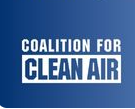












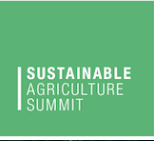
















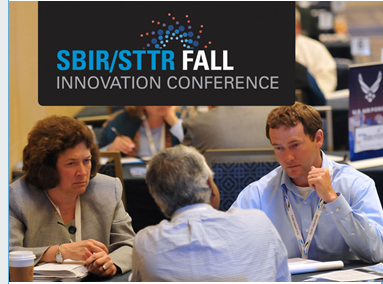










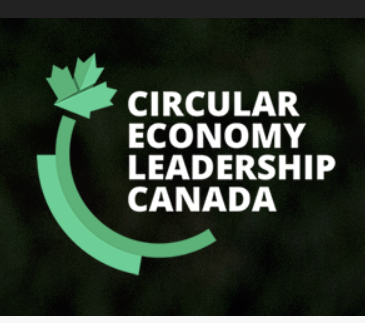

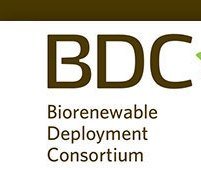
.jpg)




